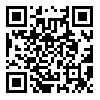目的通过生物信息学方法筛选乳腺癌-抑郁症关联基因,进而预测治疗乳腺癌-抑郁症的潜在中药。方法(1)从GEO数据库下载乳腺癌相关数据集GSE70905和抑郁症相关数据集GSE98793。基于在线分析工具GEO2R筛选两个数据集中的差异表达基因(DEGs),并对两者的DEGs取交集以获取乳腺癌-抑郁症关联基因。(2)针对乳腺癌-抑郁症关联基因,利用在线分析工具DAVID进行功能富集分析和通路富集分析,利用STRING数据库和Cytoscape 3.7.2软件构建蛋白-蛋白互相作用网络并筛选关键基因。使用GEPIA数据库分析关键基因在乳腺癌组织中的mRNA表达量。根据关键基因mRNA表达量中位数将乳腺癌患者分为高表达组和低表达组,利用在线数据库Kaplan-Meier Plotter进行生存分析。(3)在Coremine Medical数据库中对关键基因进行映射,筛选出与关键基因相关的中药。结果(1)共筛选出281个乳腺癌-抑郁症关联基因,其主要参与的生物学过程包括血管内皮生长因子受体信号通路、白细胞迁移等,涉及的信号通路包括IgE-FC片段受体信号通路、Rap1信号通路、鞘磷脂信号通路等。(2)共筛选出16个关键基因,其中有7个关键基因在乳腺癌组织中显著表达且与乳腺癌患者预后密切相关。CXCL10和CXCL11在乳腺癌组织中表达上调,CXCL10和CXCL11高表达的乳腺癌患者生存率更低(P<0.05);ADRA2A、CXCL2、DRD2、GABBR1和PTGER3在乳腺癌组织中表达下调,上述基因高表达的乳腺癌患者生存率更高(P<0.05)。(3)人参、火麻仁等是治疗乳腺癌-抑郁症的潜在中药。结论CXCL10、CXCL11、ADRA2A、CXCL2、DRD2、GABBR1和PTGER3等基因可能通过血管生成、免疫炎症反应等信号通路参与乳腺癌和抑郁症的发生和发展,且与乳腺癌患者预后密切相关。人参、火麻仁等中药可为乳腺癌合并抑郁症患者的治疗提供新方向。
当前位置:首页 / 乳腺癌-抑郁症关联基因筛选与中药预测的生物信息学研究
论著.生物信息技术
|
更新时间:2023-10-09
|
乳腺癌-抑郁症关联基因筛选与中药预测的生物信息学研究
Bioinformatics study of breast cancer-depression related genes screening and Traditional Chinese Medicine prediction
广西医学 2023第45卷15期 页码:1586-1863
作者机构:李丹云,在读硕士研究生,研究方向:中医妇科学。
- 中文简介
- 英文简介
- 参考文献
ObjectiveTo screen breast cancer-depression related genes through bioinformatics method, so as to predict potential Traditional Chinese Medicine for the treatment of breast cancer-depression. Methods(1) The dataset GSE70905 related to breast cancer and dataset GSE98793 related to depression were downloaded from the GEO database. Differentially expressed genes (DEGs) were screened from the two datasets based on online analyzer tool GEO2R, and the DEGs of the two were intersected to obtain breast cancer-depression related genes. (2) For genes related to breast cancer-depression, the functional enrichment analysis and pathway enrichment analysis were performed by using the online analyzer tool DAVID, and protein-protein interaction network was established to screen the key genes by using the STRING database and Cytoscape 3.7.2 software. The mRNA expressions of key genes in breast cancerous tissues were analyzed by employing the GEPIA database. Patients with breast cancer were assigned to high expression group or low expression group according to the median mRNA expression of key genes, and survival analysis was performed by using the online database Kaplan-Meier Plotter. (3) The key genes were mapped in the Coremine Medical database to screen out the Traditional Chinese Medicines related to the key genes. Results(1) A total of 281 breast cancer-depression related genes were screened out, which were mainly involved in biological processes with respect to vascular endothelial growth factor receptor signaling pathway, leukocyte migration, etc., and in signaling pathways including Fc fragment of IgE receptor signaling pathway, Rap1 signaling pathway, and sphingomyelin signaling pathway, etc. (2) A total of 16 key genes were screened out, of which 7 key genes were significantly expressed in breast cancerous tissues and were closely related to the prognosis of patients with breast cancer. The expressions of CXCL10 and CXCL11 were up-regulated in breast cancerous tissues, and breast cancer patients with high expressions of CXCL10 and CXCL11 had a lower survival rate(P<0.05). ADRA2A, CXCL2, DRD2, GABBR1 and PTGER3 were down-regulated in breast cancerous tissues, and breast cancer patients with high expressions of these genes as above had a higher survival rate (P<0.05). (3) Ginseng, Fructus cannabis, and others were potential Traditional Chinese Medicines for the treatment of breast cancer-depression. ConclusionGenes such as CXCL10, CXCL11, ADRA2A, CXCL2, DRD2, GABBR1, and PTGER3 may be involved in the occurrence and development of breast cancer and depression through signaling pathways such as angiogenesis and immune inflammatory response, etc., and are closely related to the prognosis of patients with breast cancer. Ginseng, Fructus cannabis, and other Traditional Chinese Medicines can provide novel direction for the treatment of patients with breast cancer and concomitant depression.
-
无




 注册
注册 忘记密码
忘记密码 忘记用户名
忘记用户名 专家账号密码找回
专家账号密码找回 下载
下载 收藏
收藏
